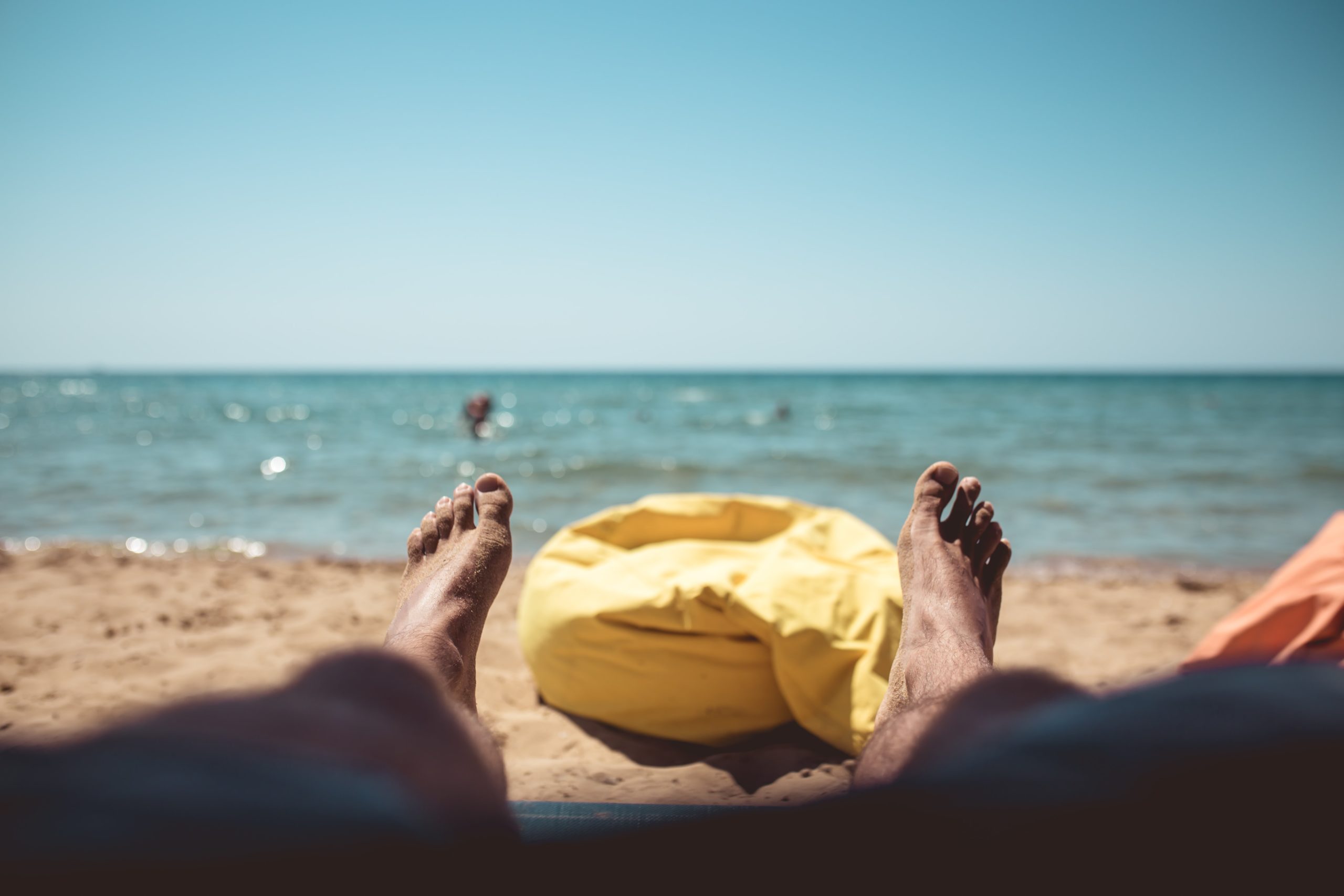Due to the coronavirus pandemic, we have all spent what feels like an eternity at home. With this in mind, I’m sure many people are looking forward to taking advantage of the heat and sunshine to come! Fresh air and exercise is vital at uncertain times, so why let foot and ankle problems hold you back?
Sadly, many foot problems tend to arise in the summer months and may be extra troublesome this year as most individuals have been struggling to maintain their conditions as much.
Here are some essential summer foot care advice that can help shift the balance of probability in your favour!
Don’t walk around barefoot or in flip flops all day
Taking shoes that provide proper support out of the equation is simply asking for pain! Without supporting footwear, your muscles and bones have to cope with heavy impacts and hard, flat surfaces all on their own.
Besides the excessive amount of pain that going barefoot causes, it can also cause athletes’ foot, fungal nails and warts when walking in shared or public areas.
Flip Flops offer zero support for your feet; if you are simply lounging on the beach or sunbathing in your backyard this summer, they are perfect for the job. However, if you plan to do trivial amounts of walking, standing or athletic activities, it is highly recommended that you invest in supportive shoes or sandals.
Make sure your shoes and sandals fit and offer sufficient support
If you find your shoes or sandals don’t fit, don’t cope well with moisture, or aren’t giving your feet the support you need, they may be doing you more harm than good.
To cope with the hot and humid summer months, you will need something breathable; sandals are the obvious choice. However, you must avoid any sort of sandals that flop or are lacking severely in arch support and cushioning. For closed-toed shoes, search for upper fabrics that breathe, for instance, canvas or leather, and moisture-wicking socks.
Furthermore, ensure you have sport-specific shoes if you plan on specialising in a specific activity such as running. These type of shoes are designed specifically for the kind of stresses and risks associated with particular movements.
Don’t go too hard, too soon
Don’t be surprised if you find yourself obsessed with exercise; it is completely normal after being cooped up for so long! Keep in mind; this is a fantastic way to get injured, especially if you’ve lacked in your stay at home keep fit routines!
When beginning new activities or exercise routines, it is critical to take it steady at first. Find a happy medium, challenge yourself at a range that is still in your level of ability. As your body adjusts to the new activities, you can increase the difficulty by 10 to 15 per cent per week at most. By doing this, you will be building slowly and safely toward your goals.
Mix it up
One of the most significant ways to make sure you avoid overstraining any one muscle or part of your body is to cross-train. Partaking in long runs 4-5 days per week may seem fun at first, but keeping up that pace without enough break time puts you at very high risk of chronic pain.
Eliminating a few days of high impact exercise from your weekly schedule and inserting different sorts of activities instead can help prevent foot failure and pain. Strength training or low-impact cardio alternatives such as cycling or swimming could be exceptionally beneficial.
Protect your feet from the sun
If comfortable, supportive sandals are your go-to footwear, be sure to protect your exposed skin! The tops of your feet are just as susceptible to sunburn as any other part of your body, and sunburn can be extremely agonising.
Be sure you read and follow the instructions on the sunscreen bottle; most recommend you apply at least 30 minutes before going outside and reapply every few hours.
The above tips should most definitely help alleviate any needless foot and ankle injuries. However, if you find yourself developing discomfort in your feet, whether it a sprain, chronic heel pain or an ingrown toenail, please do not hesitate to contact a podiatrist before they have the chance to worsen.

